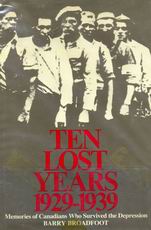
Ulli Diemer — Radical Digressions
Articles Lists
- Selected Articles
- Articles in English
- Articles in French
- Articles in Spanish
- Articles in German
- Articles in Other Languages
- Articles A-Z
- RSS feed
- Subject Index
Selected Topics
- Alternative Media
- Anarchism
- Bullshit
- Capital Punishment
- Censorship
- Chess
- Civil Liberties
- Collective Memory
- Community Organizing
- Consensus Decision-making
- Democratization
- Double Standards
- Drinking Water
- Free Speech
- Guilt
- Health Care
- History
- Identity Politics
- Interviews & Conversations
- Israel/Palestine
- Libertarian Socialism
- Marxism
- Men’s Issues
- Moments
- Monogamy
- Neo-Liberalism
- New Democratic Party (NDP)
- Political Humour/Satire
- Public Safety
- Safe Spaces
- Self-Determination
- Socialism
- Spam
- Revolution
- Trotskyism
Blogs & Notes
- Latest Post
- Notebook 11
- Notebook 10
- Notebook 9
- Notebook 8
- Notebook 7
- Notebook 6
- Notebook 5
- Notebook 4
- Notebook 3
- Notebook 2
- Notebook 1
Compilations & Resources
- Connexions
- Other Voices newsletter
- Seeds of Fire
- Alternative Media List
- Manifestos & Visions
- Marxism page
- Socialism page
- Organizing Resources
- People’s History, Memory, Archives
- Connexions Quotations page
- Sources
- What I’ve been reading
- What I’ve been watching

Ten Lost Years discovery of superb social history

Ten Lost Years: 1929-1939
Memories of Canadians who survived the Depression
Barry Broadfoot
Doubleday; $9.95
Reviewed by Ulli Diemer
Barry Broadfoot's book consists almost entirely of excerpts from interviews he conducted with people who remember the Depression. The people speak for themselves: Broadfoot has edited them and organised them under various headings, added brief explanatory paragraphs, and included a number of pictures.

The approach is a success, without question. Ten Lost Years is a superb work, presenting a vivid and unforgettable picture of that unbelievable decade. For those who lived through that time, it will be a poignant reminder of their own experiences, as well as a source of deepened understanding of how others fared. For those of us who were born after the Depression, it is a magnificent piece of social history that brings to life a crucial period in our parents' past.
The Depression was not a time of universal poverty - rather, many lost everything or almost everything, while others continued as well-off, or better, than before. It was a time of grotesque inequality, not of equal suffering, as Canadians who named their "Bennett buggies" after the millionaire prime minister, were only too aware.
Broadfoot deals with the rich and the reasonably secure as well as the starving and destitute; accounts of people staying at the Ritz while they acquire a house and hire servants are juxtaposed with stories of men fainting from lack of food and women becoming prostitutes to support themselves.
Nor is it an unrelieved tale of gloom. Canadians showed plenty of courage, pride, and determination to find humour in all the disaster, and that too comes across.
Fascinating, too, is the combination of acceptance and despair, or rebelliousness and anger, that characterised the response of different people to a disaster that was not caused primarily by natural calamity, but by the collapse of capitalism. While there was no revolution, there were plenty of indications that people were being pushed to the brink, like the On to Ottawa Trek, the Vancouver riots, the seething work camps, the attacks on landlords who tried to evict penniless tenants.
But the people speak best for themselves. Section headings are a good indication of the book's range; they include Government Relief Camps - They Treated Us Like Dirt; Employers Could Pick and Choose; Pride - A Commodity In Generous Supply; Dishonesty? Just a Word for Survival; Home-Made Entertainment; Kids; They Didn't Consider Indians People; It Gave Politicians More to Louse Up; So Many Problems and So Many Bureaucrats; Bankers and Business Walked Hand in Hand; The Rosy Pictures of The Timid Press; Law and Order; 1939 Lining Up to Die.
A few excerpts:
"Look at it this way. Say, on July 1, 1930, Steve still had a business and a fine house in Burlington and a nice wife. By January 1, six months later, he's zilch. Living in the basement in his own house and his wife is the maid upstairs and the cook."
"The kids were playing road hockey out in front and my mother said, 'Jamie, go out now and play. You've got to go out and face them sometime.' I went out and began to bat around with them and one kid spotted those L'il Abners and yelled 'Relief boots. Jemie's got relief boots' and everybody laughed. A couple of others made smart remarks, and the first time we were scrimmaging with the ball I gave the first guy a swift kick in the shins. The two other guys got it shortly after, and there were three guys sitting on the curb holding their ankles and shins and crying. No one laughed at my boots again."
"I know one family which lost three children from hunger. Lack of food, malnutrition, their diarrhea which they couldn't fight because they were so weak and to me that is dying of starvation. They were my sister's kid: and every day if Bennett is in hell I'll curse him a thousand times, even today, and if he is in heaven, curse him a thousand times and wish he was in hell. I will do it until I die."
Subject Headings
Capitalist Crises -
Economic Crises -
Economic Depression -
History/Canadian -
Oral History